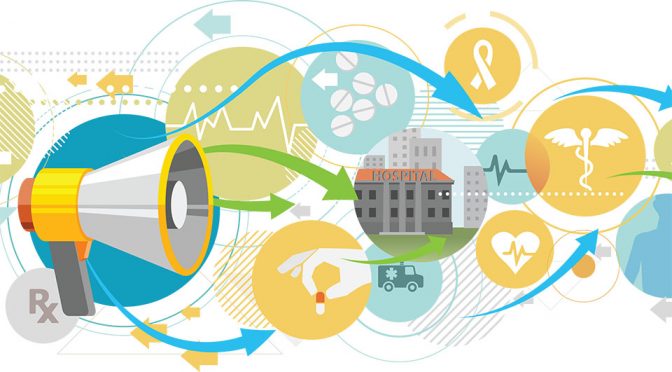When the University of Missouri-Kansas City School of Nursing and Health Studies won a $7 million grant — the largest in the school’s history — it was charged with a challenging task: build a national HIV-prevention resource center.
Laurie Krom and Jacki Witt, co-directors of the five-year award from the Centers for Disease Control and Prevention, are accomplishing the mission.
“It means a lot of relationship building,” Krom says. “We are bringing together competing organizations, but it is working. Everyone is doing what they’re doing for the same reasons and the same mission in preventing HIV.”
In 2014, the CDC reported 44,073 new HIV diagnoses in the U.S. The grant of $1.4 million annually established the National Capacity Building Assistance Provider Network Resource Center at the School of Nursing and Health Studies. That title is more than a mouthful, so one of the tasks was creating a brand. Krom, Witt and a staff of 18 formed CPN, or Capacity Building Assistance Provider Network.
Together, they work with more than 20 national and regional health departments and organizations from coast to coast to help the nation’s HIV prevention workforce use best practices in planning, implementing and evaluating high-impact HIV prevention programs.
“We’re introducing UMKC to a lot of people across the country,” Witt says. “It’s given us an opportunity to use our fields of expertise.”
The UMKC School of Nursing and Health Studies has already established national coordinating expertise in the areas of behavioral and reproductive health programs; that expertise was a significant factor in gaining the new national headquarters for Kansas City.
“We’re very excited because this was such a competitive grant process,” Krom says. “UMKC stands out because of our expertise in national network building, instructional technology and strategic marketing. We are also uniquely located on an interprofessional life sciences research campus.”
UMKC’s Health Sciences Campus at Hospital Hill includes the Schools of Dentistry, Medicine, Nursing and Health Studies, and Pharmacy, and each have HIV-related research. UMKC is nationally recognized for its HIV prevention research and strategies in African-American churches.
The grant proposal was based on the model of the Collaborative for Excellence in Behavioral Health Research and Practice’s Addiction Technology Transfer Center (ATTC) National Office, which mobilizes the power of the ATTC Network to efficiently and effectively promote the adoption and implementation of evidence-based addiction treatment practices.
“The new resource center brings together all of the strengths of our school,” Witt says. “We have assembled an interprofessional team of researchers, clinicians, advocates, educators and administrators who will offer a fresh perspective to building the capacity of the U.S. HIV prevention workforce.”

